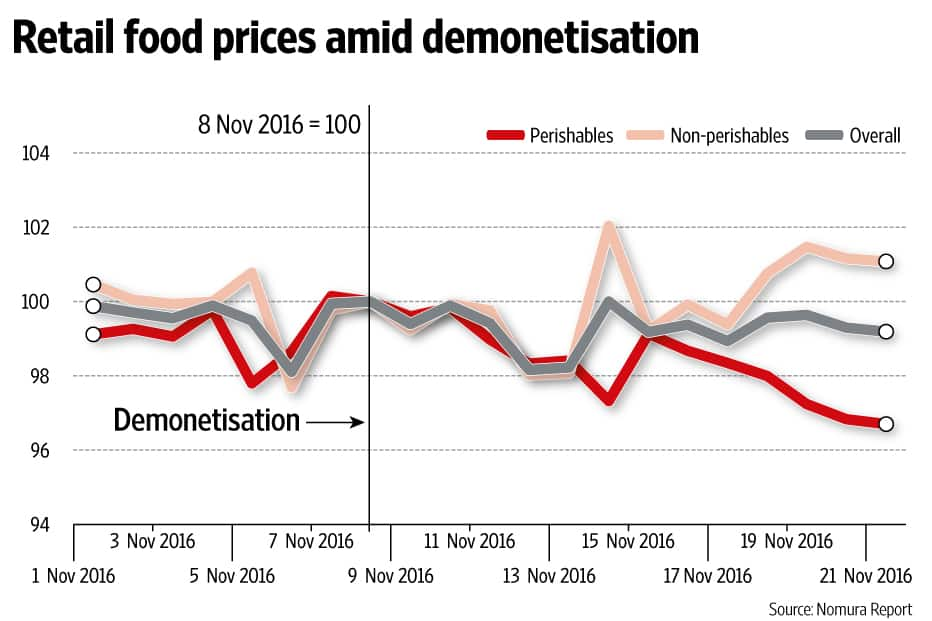Demonetisation drags down perishable food prices
The fall in perishable food prices was mainly due to lower fruit, vegetable and egg prices
 Premium
Premium
New Delhi: Perishable food prices have moderated by 3.3% in the 9-21 November period, compared to 1-8 November, as a consequence of the demonetisation due to supply shocks and farmers selling perishable harvest at lower prices, said a Nomura Securities report titled “Demonetization’s effects on inflation" released on Tuesday.
The fall in perishable food prices was mainly on account of lower fruit, vegetable and egg prices.
Cash shortage has curtailed transportation and severely limited the ability of middlemen to buy any significant stock, forcing farmers to sell perishable goods at lower prices.
“The cash shortages will ease over time; we expect perishable prices to recover in the first quarter of the 2017," the report said.
Prices of non-perishable products, meanwhile, increased by 1.1%. This was mainly due to the rise in wheat prices, an important component of the cereal consumption in India.
Non-perishable products include cereals, pulses, edible oil, sugar, salt and tea.
The perishable and the non-perishable food items together account for the 25% of the consumer price index (CPI) basket.
On aggregate, food inflation fell by 0.8%. According to the report, the moderation in aggregate food prices will lower inflation in November, bringing it down to 4% from 4.2% in October.
The report said that demonetisation is disinflationary in the medium term while it will be more neutral in the near term.
Unlock a world of Benefits! From insightful newsletters to real-time stock tracking, breaking news and a personalized newsfeed – it's all here, just a click away! Login Now!



